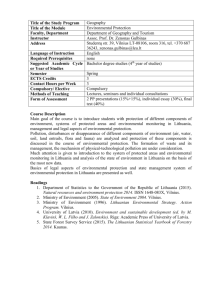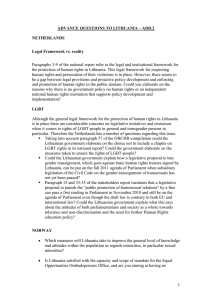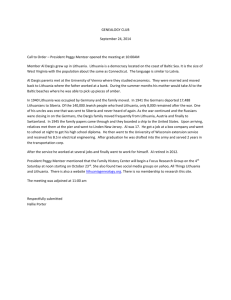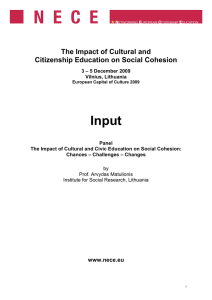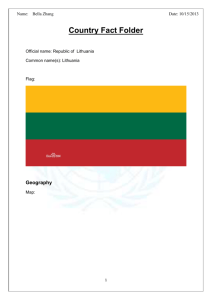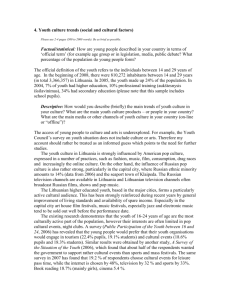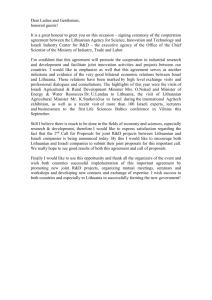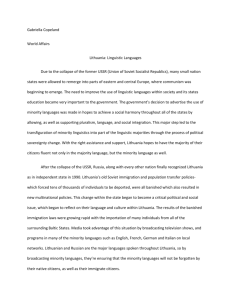DOC - UNEP
advertisement
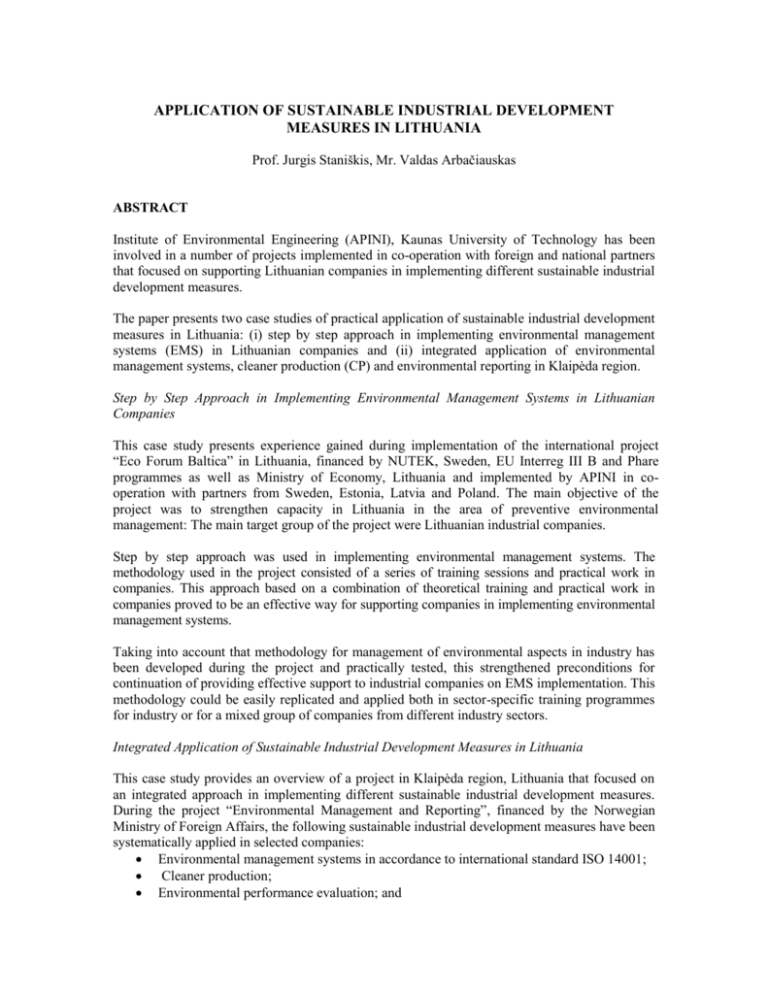
APPLICATION OF SUSTAINABLE INDUSTRIAL DEVELOPMENT MEASURES IN LITHUANIA Prof. Jurgis Staniškis, Mr. Valdas Arbačiauskas ABSTRACT Institute of Environmental Engineering (APINI), Kaunas University of Technology has been involved in a number of projects implemented in co-operation with foreign and national partners that focused on supporting Lithuanian companies in implementing different sustainable industrial development measures. The paper presents two case studies of practical application of sustainable industrial development measures in Lithuania: (i) step by step approach in implementing environmental management systems (EMS) in Lithuanian companies and (ii) integrated application of environmental management systems, cleaner production (CP) and environmental reporting in Klaipėda region. Step by Step Approach in Implementing Environmental Management Systems in Lithuanian Companies This case study presents experience gained during implementation of the international project “Eco Forum Baltica” in Lithuania, financed by NUTEK, Sweden, EU Interreg III B and Phare programmes as well as Ministry of Economy, Lithuania and implemented by APINI in cooperation with partners from Sweden, Estonia, Latvia and Poland. The main objective of the project was to strengthen capacity in Lithuania in the area of preventive environmental management: The main target group of the project were Lithuanian industrial companies. Step by step approach was used in implementing environmental management systems. The methodology used in the project consisted of a series of training sessions and practical work in companies. This approach based on a combination of theoretical training and practical work in companies proved to be an effective way for supporting companies in implementing environmental management systems. Taking into account that methodology for management of environmental aspects in industry has been developed during the project and practically tested, this strengthened preconditions for continuation of providing effective support to industrial companies on EMS implementation. This methodology could be easily replicated and applied both in sector-specific training programmes for industry or for a mixed group of companies from different industry sectors. Integrated Application of Sustainable Industrial Development Measures in Lithuania This case study provides an overview of a project in Klaipėda region, Lithuania that focused on an integrated approach in implementing different sustainable industrial development measures. During the project “Environmental Management and Reporting”, financed by the Norwegian Ministry of Foreign Affairs, the following sustainable industrial development measures have been systematically applied in selected companies: Environmental management systems in accordance to international standard ISO 14001; Cleaner production; Environmental performance evaluation; and Environmental reporting based on a set of selected environmental performance indicators. Building on experience gained during earlier projects that focused on improvement of environmental and economic performance of industry implemented in Lithuania, a methodology based on step by step approach consisting on a combination of theoretical and practical training has been used. However this project was the first attempt in Lithuania to implement different sustainable industrial development measures in an integrated way. The project started with training and practical application of environmental management systems and cleaner production. This has been done by a systematic integration of EMS and CP implementation methodologies. Identification of environmental performance indicators also started early in the project. Training and practical application of environmental reporting started at a later stage after companies have the main elements of environmental management systems in place. A set of environmental performance indicators developed during the project consists of company specific indicators used by particular companies and region-specific indicators used by all companies that have participated in the project. Based on these indicators, environmental report will be developed for the entire region. The follow-up of this activity will enable to assess progress in the process of sustainable industrial development in the region and to improve decision making process in terms of improving environmental performance of the region’s industry. In case of positive experience, this activity could be replicated in other regions of the country with the ultimate objective to develop national environmental reporting system. Institute of Environmental Engineering, Kaunas University of Technology K. Donelaičio str. 20, LT-3000 Kaunas, Lithuania Tel: +370 7 300760/ 300768, Fax: +370 7 209 372 E-mail: Jurgis.Staniskis@ktu.lt, Valdas.Arbaciauskas@ktu.lt
